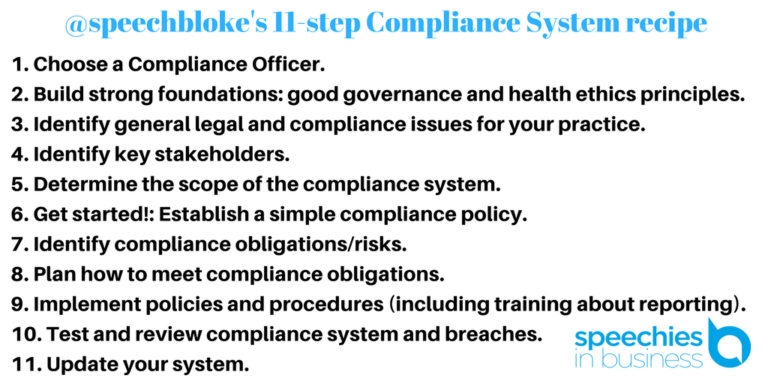SLPs: How should you name your new private practice?
The big picture:
When launching (or relaunching) a private practice, one of the trickiest decisions is what to call it. Coming up with a good name is harder than it looks, and, for legal and marketing reasons, it’s impossible to launch properly without a name.
Friction points:
Some speech pathologists (SLPs) simply use their own name, or include their name in the business name. Others don’t, and opt for an unrelated name. Too many practice owners choose similar names based on idioms, sayings or puns featuring synonyms for talking or speech. These names can confuse clients and make it harder for practices to stand out or to develop and use their brands effectively.
What we think:
The decision is subjective. But here’s what we do:
A. Don’t use your name:
We recommend not including your name in your business name. Founder-named businesses tend to:
- be valued lower by potential purchasers;
- be overvalued by founders due to endowment effects;
- increase client expectations that they receive services directly from the founder;
- encounter more issues bringing in outside partners, investors and managers;
- increase risks to the founder’s reputation because of the strong association between the founder and the practice; and
- be harder to sell.
B. Find a good name:
Use the SMILE & SCRATCH tests from Eat my Words:
1. Look for a name that makes your clients SMILE:
- Suggestive: evokes something about speech pathology and what makes your practice special or different.
- Memorable: easy to remember through association.
- Imagery: aids memory through visuals.
- Legs: lends itself to a theme for extensions and expansions of your practice and its services.
- Emotional: moves people in the direction you want them to be moved!
2. Avoid names that SCRATCH people the wrong way:
- Spelling-challenged names look unprofessional for SLPs.
- Copycat: stay away from names that sound like your competitors’ names.
- Restrictive: avoid names that limit your future growth, e.g. around locations, delivery models, or service mixes.
- Annoying: avoid names that seem forced or ‘too cute’.
- Curse of knowledge: many people have no idea what SLPs do. Avoid names that only other SLPs will understand.
- Hard for clients and others to pronounce: this is a particularly important for SLPs treating people with speech challenges!
C. Make sure it is available and appropriate:
Great minds think alike, and it’s common for practices to choose the same name without knowing about each other. This can create confusion, especially online. Before you spend time and money on logos and branding:
- Conduct business name and company name checks (or ask your business advisor, accountant or lawyer to do it for you).
- Check that the key domains are available, e.g. .com and .com.au.
- Type out the full URLs onscreen and in print, and make sure they are:
- easy to read; and
- not unintentionally inappropriate because of word boundary confusions. For example, the word “therapist” is notoriously problematic on websites.
Read more:
Should You Name Your Company After Yourself?
Eat my Words: Free SMILE and SCRATCH TEST
Resources:
Speechies in Business – grab our free Launch-to-Waitlist guide.
SLP New Practice Launch Coaching
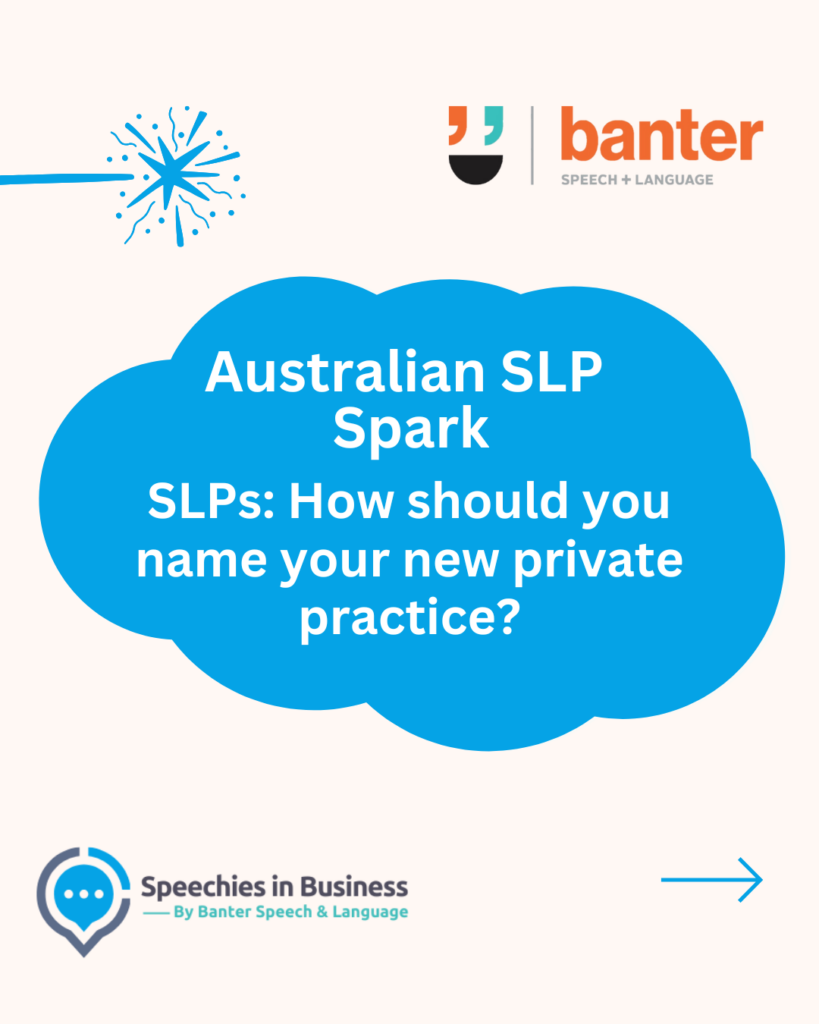
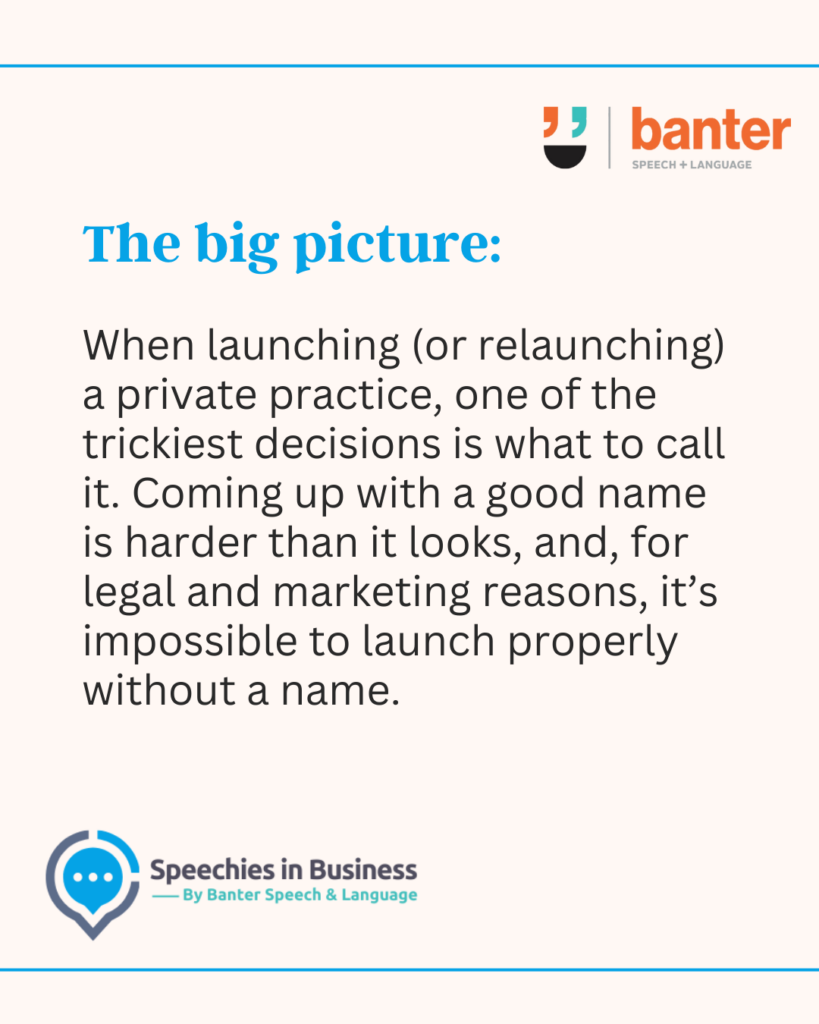
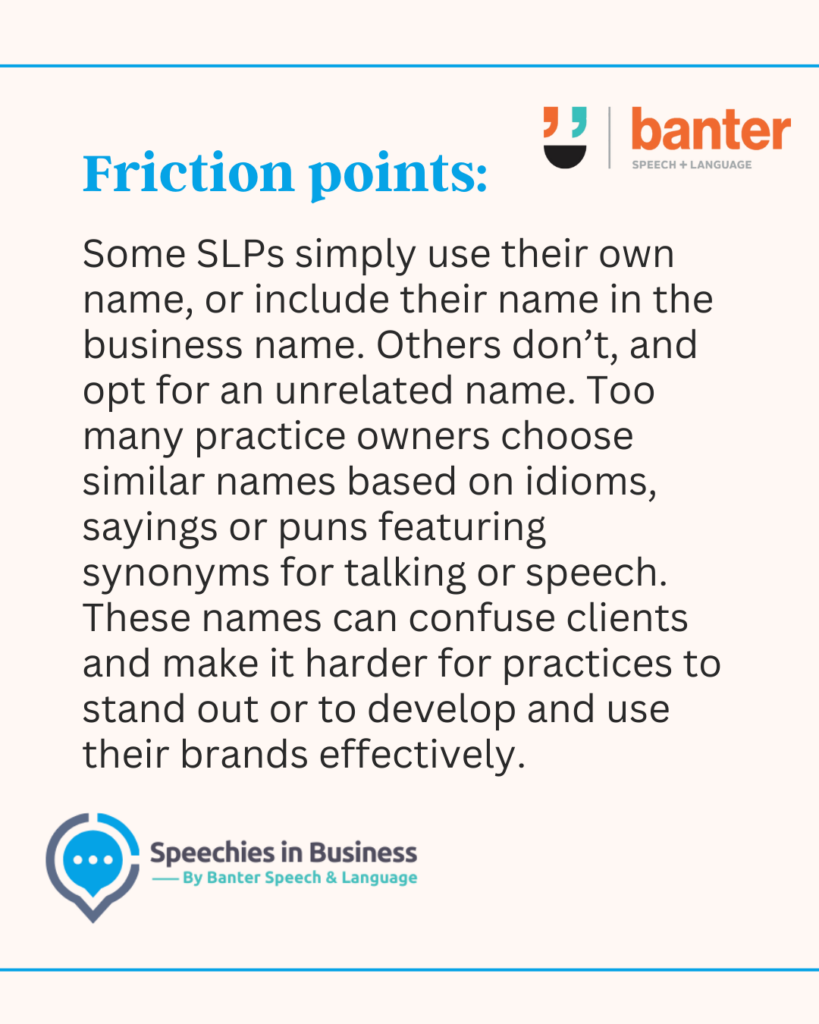
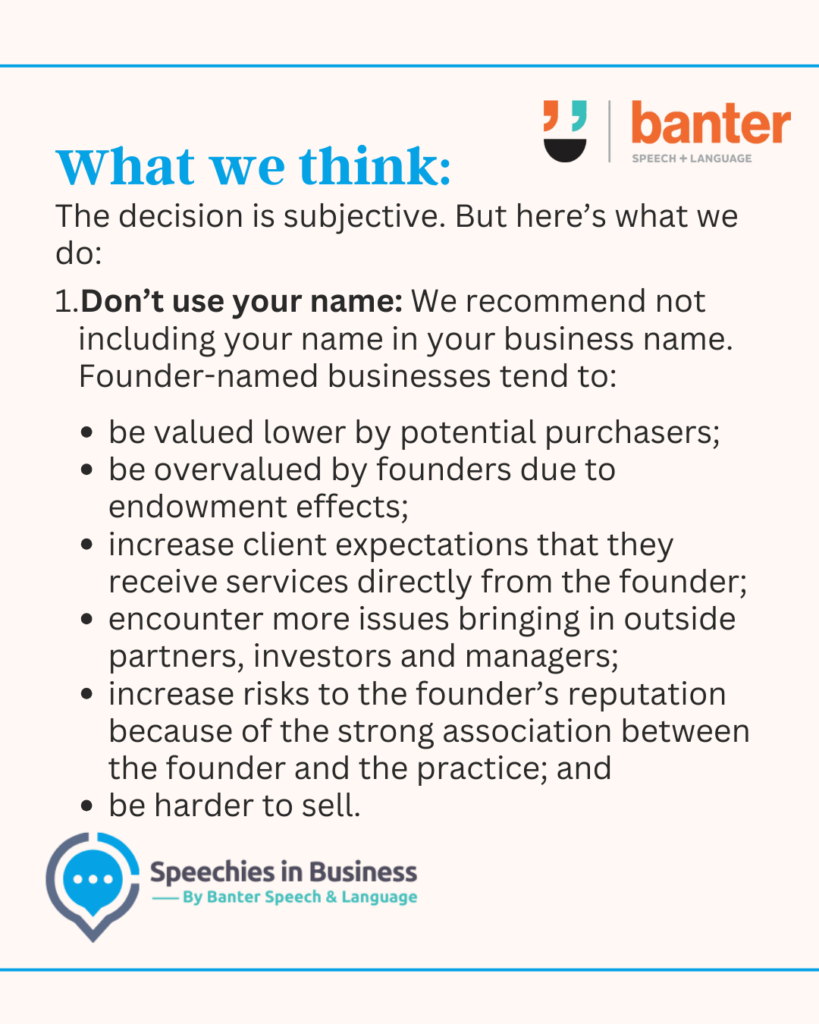
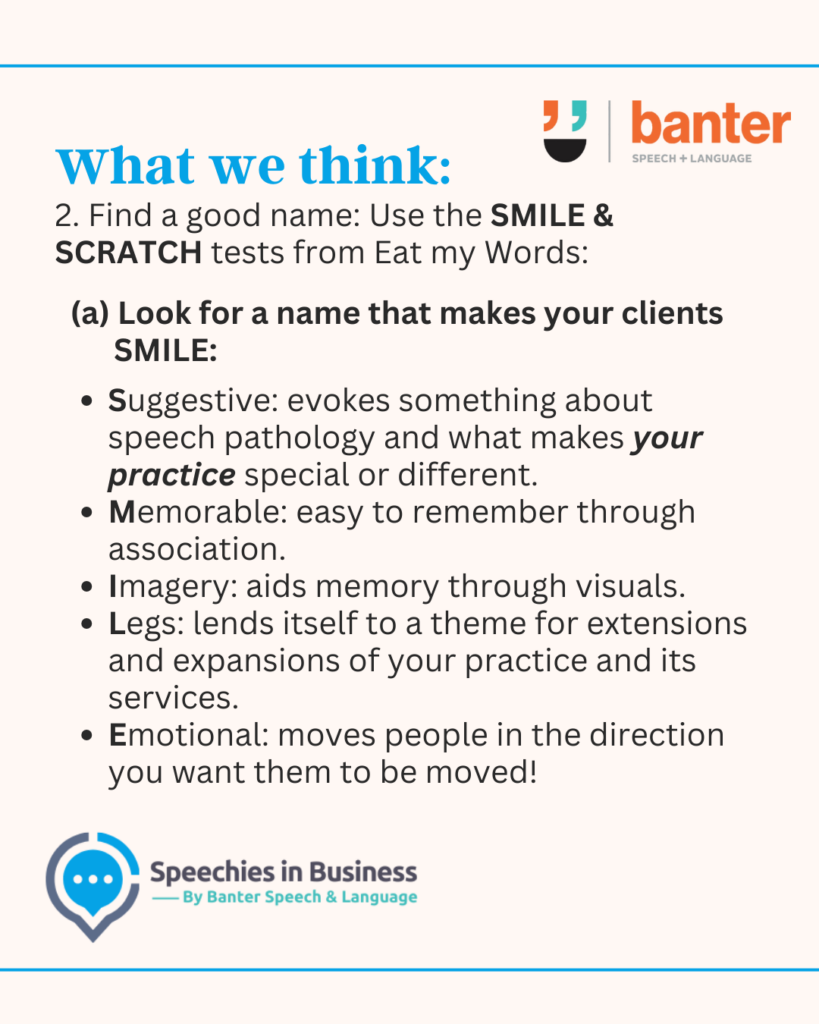
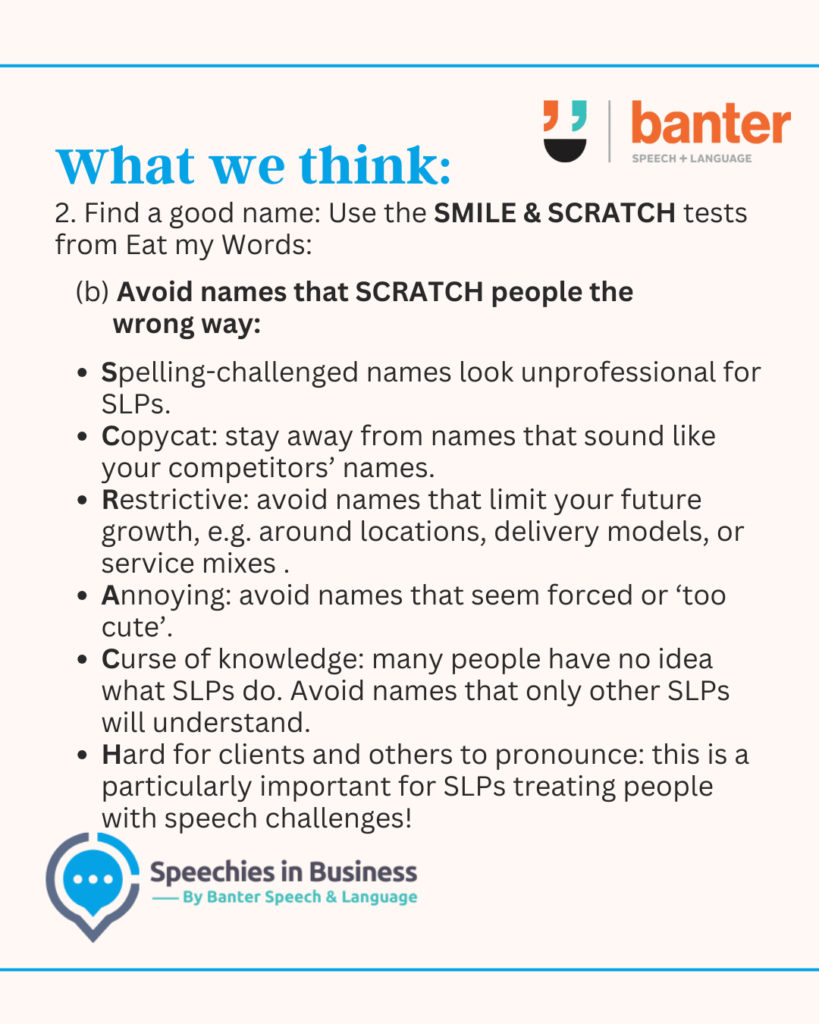
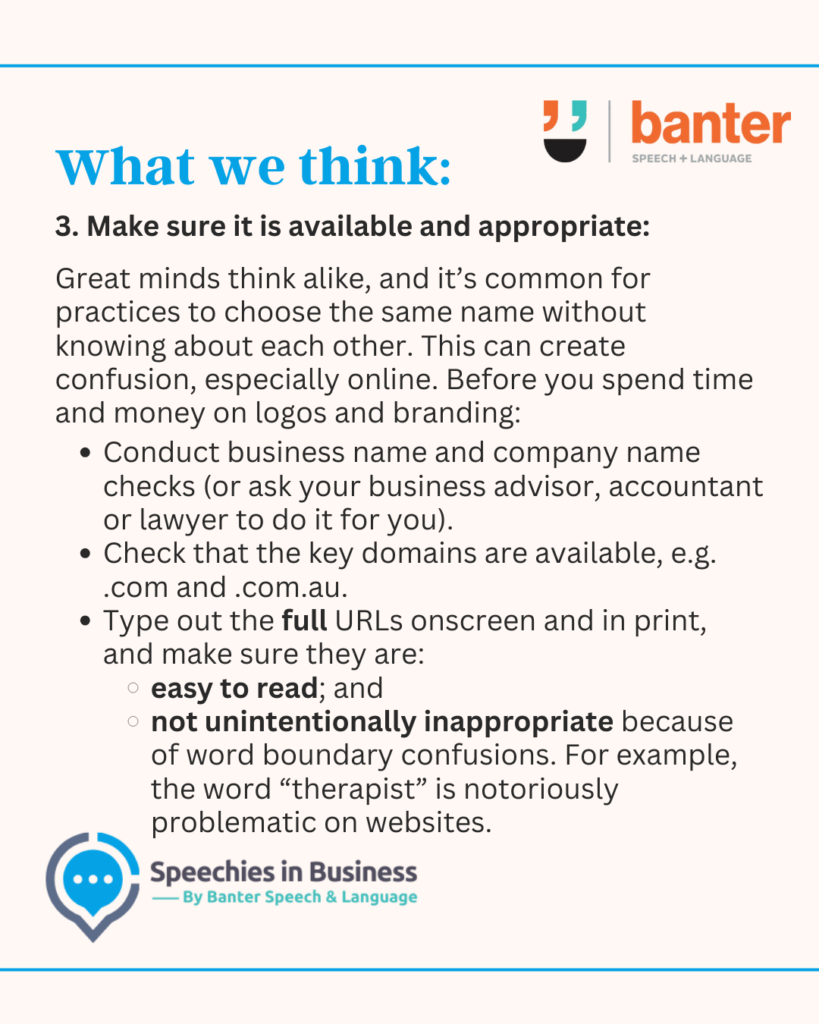

This article also appears in a recent issue of Banter Booster, our weekly round up of the best speech pathology ideas and practice tips for busy speech pathologists, speech pathology students and others.
Sign up to receive Banter Booster in your inbox each week:






